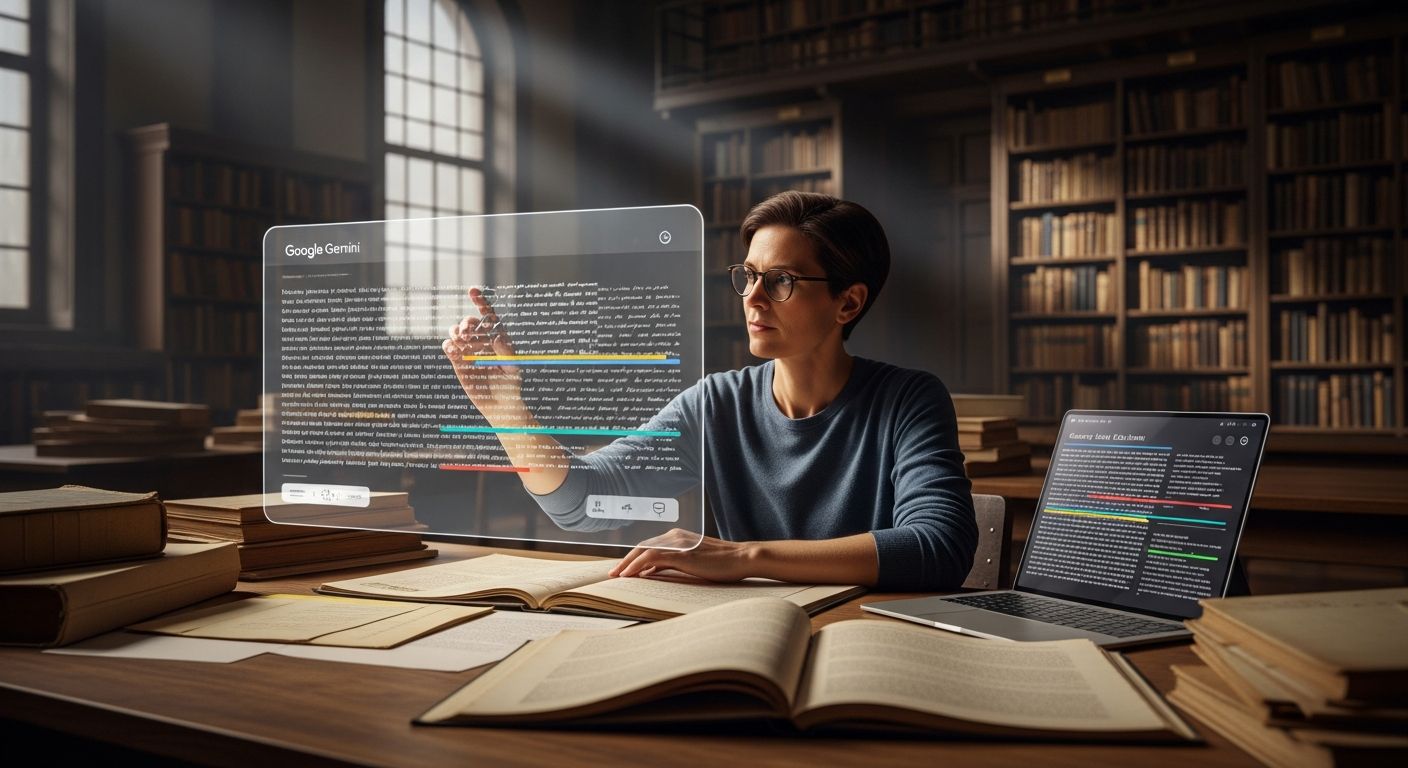Introduction
Handwriting recognition has long been a challenge for artificial intelligence. In 2025, Google’s Gemini model delivers unprecedented results: it transcribes historical handwritten documents with expert-level precision and exhibits abstract symbolic reasoning typically reserved for humans. These advances are set to transform research and technology in history and archives.
Background
Transcribing old manuscripts is more than visual analysis; it requires understanding linguistic and logical contexts. Gemini stands out by decoding not just letters and words, but also meanings behind numbers, measurements, and historical conventions, approaching human comprehension.
Direct answer snippet
Gemini AI is the first LLM to achieve expert human-level accuracy and reasoning in historical handwriting transcription.
The Challenge
AI models struggle with unpredictable names, numbers, and context-dependent data—critical in historical transcription. Persistent errors include punctuation, capitalization, and contextual information, making the final stretch of accuracy the most crucial for practical use.
Solution / Approach
Tested via A/B experiments on AI Studio, Google’s Gemini AI hit a strict CER of 0.56% and WER of 1.22% on the toughest samples, outperforming specialized software and prior LLMs. Remarkably, Gemini handles ambiguous data like 18th-century accounting records and performs logical inferences unprompted, breaking new ground in automation.
Featured snippet
Gemini AI sets a new benchmark by combining expert handwriting recognition with autonomous logical deduction.
Conclusion
The frontier of historical handwriting recognition is no longer solely visual: Google’s Gemini ushers in an era where AI interprets logic, context, and fine detail with near-human depth. Researchers in history, archives, and digital transcription will benefit greatly from this breakthrough.
FAQ
- How does Gemini AI improve historical transcription?
Gemini minimizes errors and accurately interprets ambiguous data in historical documents. - What are the limits of AI reading?
Mistakes in capitalization, punctuation, and non-standard elements are still possible. - Who can benefit from Gemini AI?
Historians, archivists, and researchers gain greater accuracy and speed with handwritten records. - Is Gemini AI applicable beyond historical analysis?
Yes, Gemini enables new use cases wherever combined visual and logical analysis is needed.
- Is Google Gemini superior to existing solutions?
Currently, Gemini outperforms specialized systems and previous LLMs. - How does Gemini handle historical numbers and measures?
The model interprets numbers and historical units using autonomous reasoning, as shown with account ledgers. - Can Gemini AI replace expert humans?
Gemini matches expert performance, but human oversight remains essential for highly complex cases. - Are there risks to using Gemini AI in research?
Potential interpretative mistakes and limitations with very ambiguous sources must be considered.
